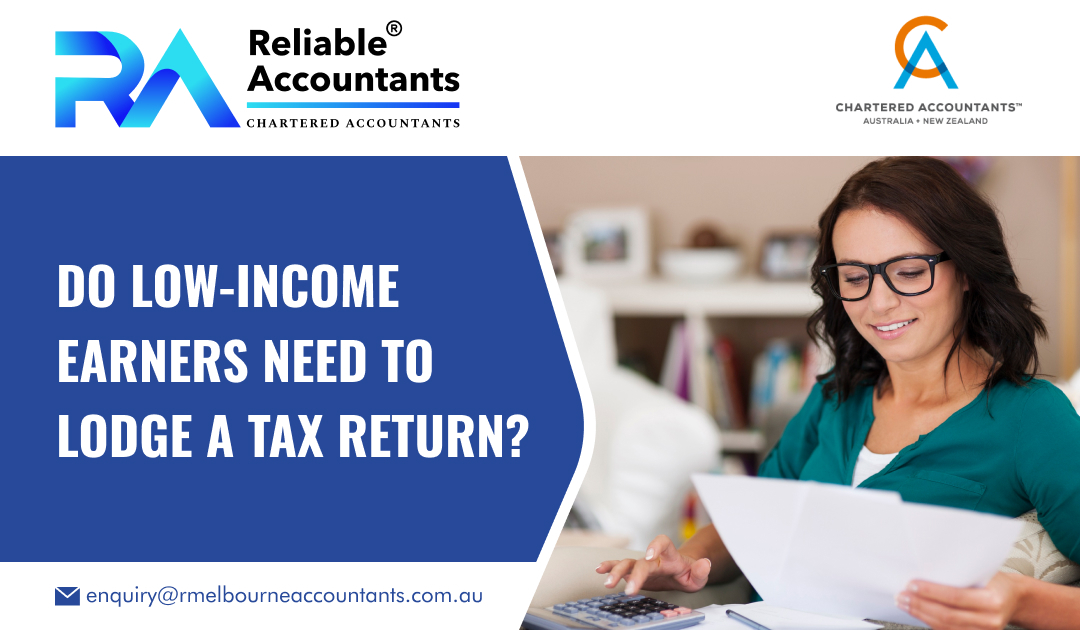If your taxable income is under the tax-free threshold, you may have to lodge a tax return. In this blog post, we’ll help you learn about when you must lodge a tax return.
What Should You Consider before You Lodge a Tax Return?
Here are a few tips to help you check your tax return before filing and help avoid delays.
- It’s crucial to understand that low-income earners may have to file a tax return even if their income is below the tax threshold.
- Work out for fraudulent payment summaries.
- Check out how foreign income and tax residency status affect tax payable in Australia.
- Clients must get a statement from Services Australia to claim the Medicare levy exemption.
- Ensure work-related expense claims meet the rules and are accurate.
- Make sure the taxpayer provides all their income, as the ATO use data-matching against third-party data.
- Check if taxpayers have earned income through the sharing economy.
- Ensure to update the business industry code reported if the taxpayer’s business has changed purpose.
- You can use the pre-filling service to check whether the information is correct, understand what data is and is not available and check out about known data issues.
- Help avoid delays in processing returns by identifying common errors before filing.
To handle your tax matters, it would be better to reach out to a tax accountant near your area by searching ‘tax accountant near me’.
When Do You Need to Lodge a Tax Return?
Common reasons for needing to file a tax return, even if the client’s income is below the tax-free threshold, include situations where the client:
- Had Pay As You Go (PAYG) withholding from payments received during the year
- Had a reportable fringe benefits amount on their PAYG payment summary or income statement
- Had reportable employer superannuation contributions on their PAYG payment summary or income statement
- Incurred a loss or can claim a loss from a prior year
- Was an Australian resident for tax purposes with exempt foreign employment income and $1 or more of other income
- Was eligible for the private health insurance rebate but did not claim the full entitlement as a premium reduction
- Was a parent responsible for, or entitled to, child support for at least one day during the year, unless both of the following conditions applied:
- They received one or more Australian Government allowances, pensions, or payments for the entire year
- Their income was less than $28,464.
Why is Record-Keeping Important?
Records are written evidence that shows your expenses or income. You must record and maintain records that support claims made by you in your tax return. The tax system of Australia depends on self-assessment so the ATO accepts that the information you provide is error-free. Record-keeping helps you and your tax return accountant:
- to give written evidence of your expenses and income
- prepare your tax return
- ensure you are eligible to claim potential deductions
- prove the given information in a tax return is accurate
- minimise the risk of tax audits
- improve communication with the tax authorities
- resolve issues related to a dispute of your assessments
- avoid penalties
Keeping accurate records minimises the cost of managing your tax matters. If you use a tax accountant, you can invest your time focusing on other important tasks. This will give you time to ensure you claim potential deductions. If the incurred expenses are for private use, you must keep records that show how you worked out the portion of incurred expenses in earning assessable income. To maintain your records accurately, you can opt for bookkeeper services in Melbourne.
Conclusion
If you meet the conditions for tax return lodgment, then you are liable to lodge a tax return. Before lodging tax returns, you need to consider a few things as mentioned above in this blog. Moreover, if you are unfamiliar with the tax return process, it would be better to seek help from Reliable Melbourne Accountants.

